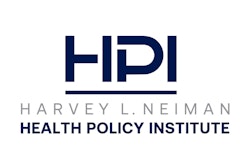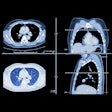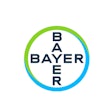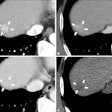People who participate in shared decision-making with their healthcare provider before initial lung cancer screening (LCS) are more likely to adhere to follow-up screening, according to Harvey L. Neiman Health Policy Institute (HPI) researchers.
Their report suggests that this type of interaction between patients and providers could be an effective way to improve adherence to LCS with low-dose CT (LDCT), and thus reduce lung cancer mortality rates. It was published July 9 in Chest.
"We found that patients who had a shared decision-making visit with their provider were more likely to remain engaged with lung cancer screening over time," lead author and HPI Principal Researcher YoonKyung Chung, PhD, said in a statement released by the institute. "This effect was consistent even after adjusting for patient, clinician, and practice-level factors."
Yearly lung cancer screening is key to finding the disease in early stages, when it is most treatable, the researchers wrote. Yet adherence rates to this protocol remain low, they noted, citing a 2023 study that found a rate of repeated LCS a year after the initial screen of only 23.3% and less than 5.9% by year three.
Chung and colleagues conducted a study that included a nationally representative 5% sample of Medicare fee-for-service beneficiaries' data from 2015 to 2020. They found that among 22,670 individuals who received their first LDCT scan between 2016 and 2019, only 11.4% had a documented shared decision-making visit within 90 days prior to screening.
However, those who did have this visit with their healthcare provider had subsequent LCS adherence rates 26.5% higher in the first year after their initial screening and 32.5% higher by the fourth year of follow-up compared with those who did not.
"Our findings provide strong evidence supporting shared decision-making, which was associated with a meaningful and lasting impact on screening behavior," said senior author and HPI Research Director Eric Christensen, PhD. "Policies and practice-level interventions aimed at increasing LCS adherence should leverage these findings to expand [shared decision-making] use, especially as [the Centers for Medicare and Medicaid Services] continues to evolve its LCS guidelines, and now specifically reimburses providers for having these discussions."
Despite the group's findings, uptake of shared decision-making is low, according to the investigators, who reported that although shared decision-making is required by Medicare for LCS referral, rates of the practice leveled out at 12.1% during the study period. The team noted several possible reasons for this, including "unclear enforcement of [shared decision-making] requirements and time constraints in clinical workflows."
"Shared decision-making is more than just a billing requirement -- it’s a valuable opportunity to engage patients in informed, personalized discussions about screening," said co-author Farouk Dako, MD, of Perelman School of Medicine in Philadelphia. "There is an opportunity to leverage this new evidence in national campaigns to raise awareness of lung screening and the importance of prioritizing [shared decision-making] in routine clinical care to improve early detection and outcomes for one of the deadliest forms of cancer."
The complete study can be found here.





















